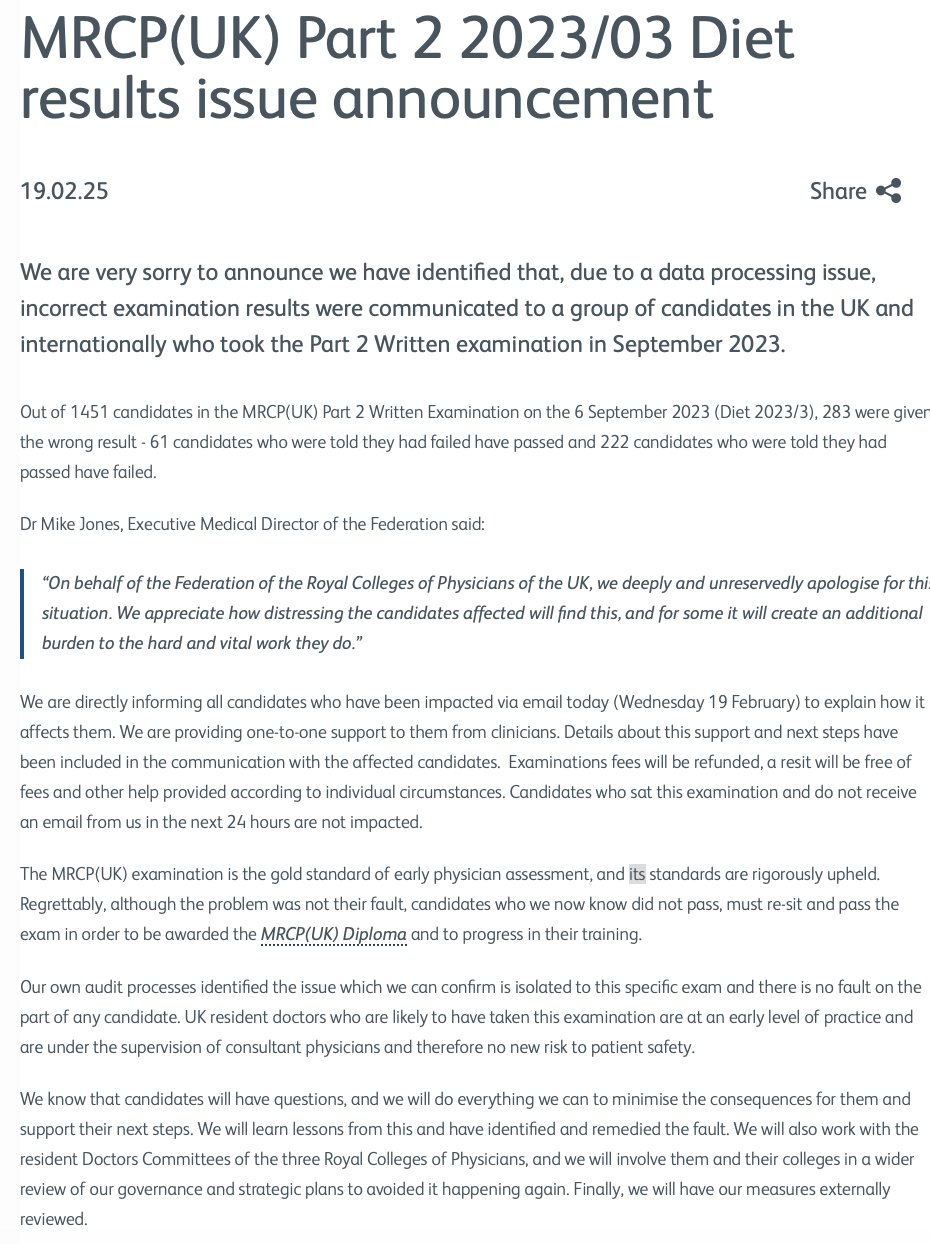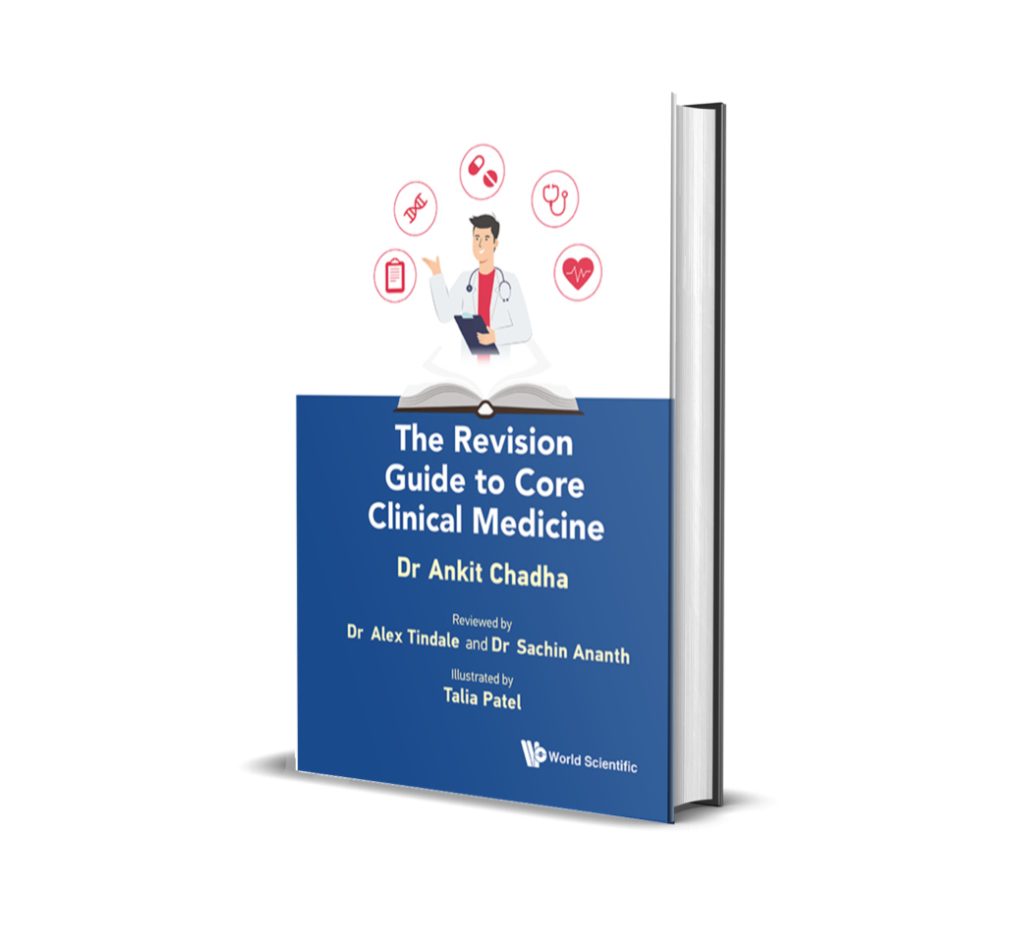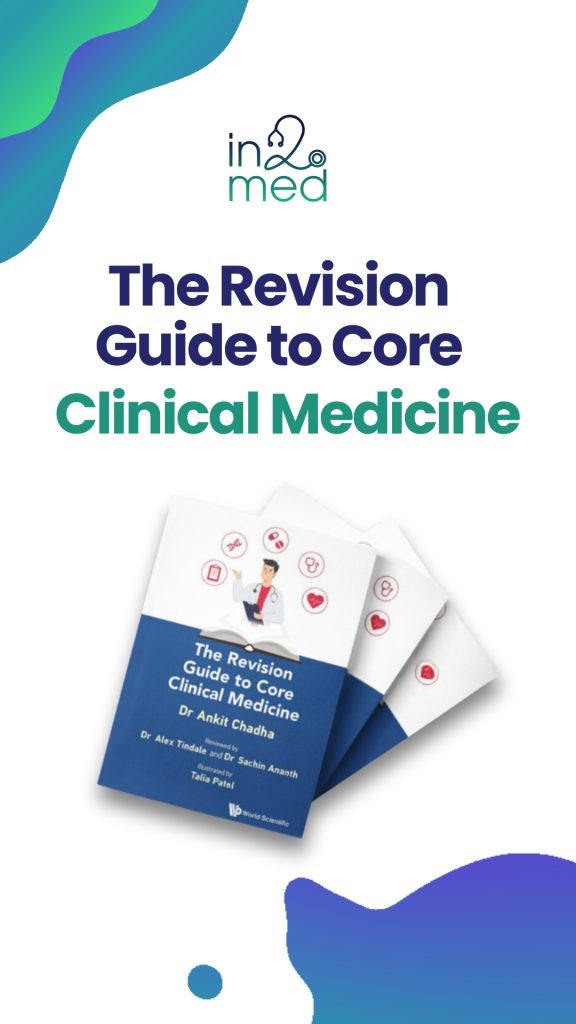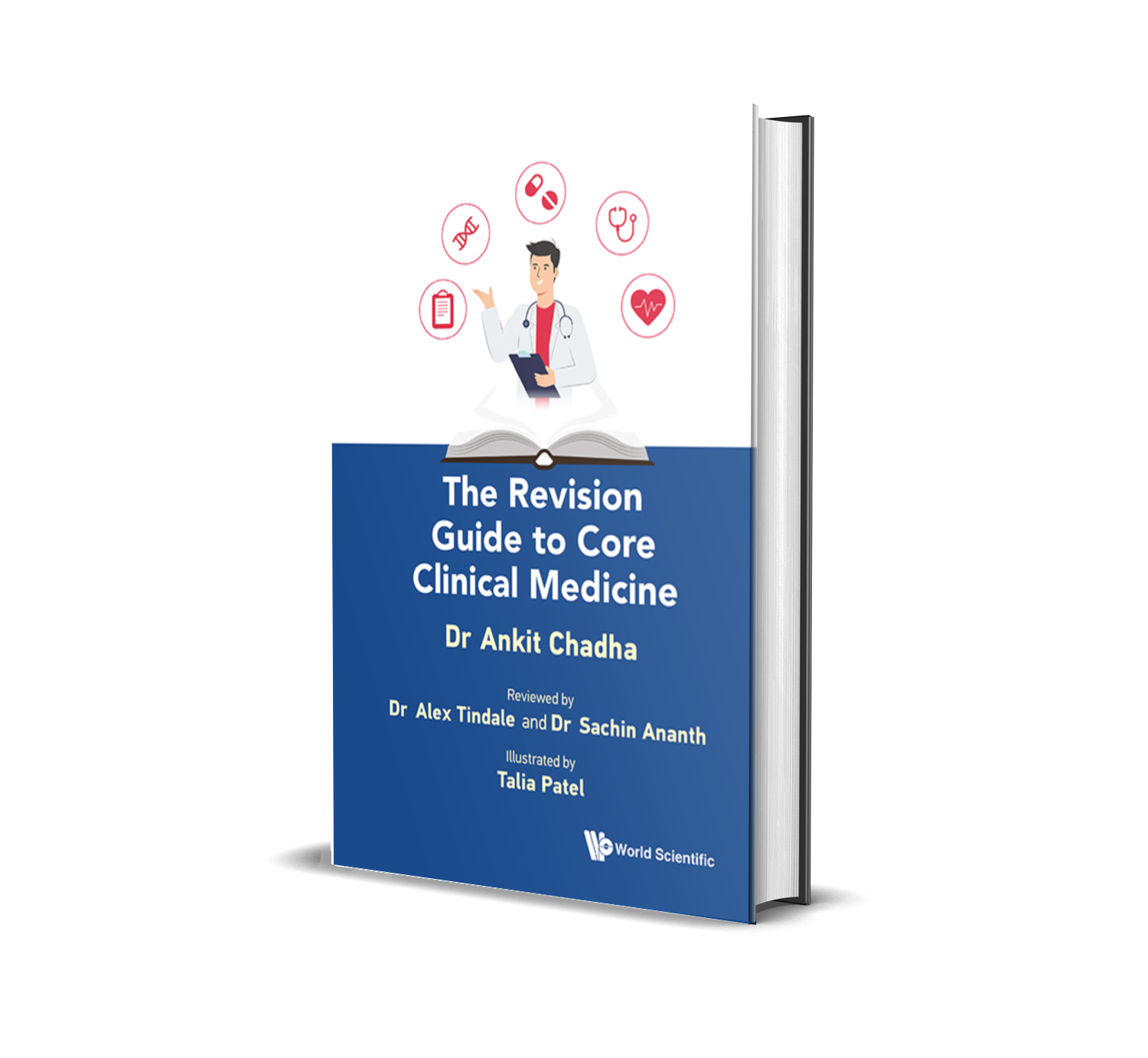MRCP Blunder
Dear Friend,
As slow as the days in January felt, February has flown by in the blink of an eye. I suppose that’s what happens when you’re on call for nine consecutive days. And to top it off, this weekend I’ll be working again in A&E on twilight shifts, which run from 3 PM to midnight. The silver lining, if there is one, is that the weather has been quite dreary lately, so it’s probably better to get through these tough shifts in the winter months and look forward to enjoying the summer.
This week, some shocking news came to light: out of 1,451 candidates who sat the MRCP(UK) Part 2 Written Examination on September 6, 2023 (Diet 2023/3), 283 were given incorrect results. Of those, 61 candidates who were originally told they had failed actually passed, while 222 candidates who were told they had passed actually failed.
The MRCP is a key postgraduate qualification for doctors aiming to enter specialty training in fields such as cardiology, respiratory medicine, oncology, and many more. The process consists of three parts: two written papers (MRCP Part 1 and MRCP Part 2) and the PACES clinical exam, which is similar to an OSCE with a series of clinical stations. Most doctors take these exams during their FY2 and IMT years.
This qualification is a crucial milestone for trainees, who must complete it before starting registrar-level training. These exams are notoriously difficult, with a pass rate of around 50% for PACES. It’s not uncommon for doctors to need multiple attempts to pass.

The consequences of this error are significant for the doctors affected. For those who were mistakenly told they had failed but actually passed, the most immediate issue is that they would have had to retake the exam. The MRCP exam is very expensive — I recall it cost me around £570. As a result, these doctors would have unnecessarily paid for another attempt when it wasn’t even required. I wonder whether they’ll be entitled to a refund for this extra cost.
What’s even more concerning, however, is that those who were told they had passed but actually failed may have missed out on important opportunities for career progression. The MRCP exam can only be taken four times a year, meaning that they would have had to wait at least three more months before they could try again. This delay could have serious consequences for their ability to apply for registrar posts.
Unqualified Doctors in Senior Positions
Even more alarming is the possibility that some doctors may now be in senior registrar positions despite not having passed this critical exam. The Department of Health has described the situation as “very concerning,” and the General Medical Council (GMC) is investigating whether patient safety could have been compromised during the 18-month period when some doctors were wrongly informed they had passed the exam when they actually hadn’t.
A spokesperson for the Department of Health and Social Care said, “This is very concerning, and we have asked NHS England to work with the Royal College of Physicians and the General Medical Council to ensure this issue is rectified as a matter of urgency.”
What Happens Next?
Honestly, I’m unsure what the next steps will be. Is it feasible to remove doctors from registrar positions until they’ve retaken and passed the exam? Or will those who were wrongly told they had passed be reimbursed for the additional attempts? I’m just thankful that I wasn’t part of this exam sitting and hope that I never receive an email like this.
The only thing I can say for certain is that, in a time when resident doctors already feel undervalued and often believe the system is working against them, this issue will certainly not help rebuild trust in the system.
I’d love to hear your thoughts on this.
Drug of the week
Posaconazole
Posaconazole is a triazole antifungal medication.
Posaconazole is used to treat invasive Aspergillus and Candida infections.
It is also used for the treatment of oropharyngeal candidiasis (OPC), including OPC refractory to itraconazole and/or fluconazole therapy
It blocks the synthesis of ergosterol by inhibiting of the enzyme lanosterol 14α-demethylase and accumulation of methylated sterol precursors.
Posaconazole is significantly more potent at inhibiting 14-alpha demethylase than itraconazole.

A Brain Teaser
A 35-year-old woman has been suffering from diarrhoea, abdominal pain and a few occurrences of rectal bleeding in the last few weeks. In the last two days, her symptoms have been more severe than before and she thus decided to attend her GP practice. She denies any recent changes in her diet and any systemic symptoms. Her GP refers her for specialist care. On histological examination of her bowel, crypt abscesses are seen.
What is the most likely diagnosis?
A: Crohn’s disease
B: Infectious colitis
C: Irritable bowel syndrome
D: Pseudomembranous colitis
E: Ulcerative colitis
Answers
The answer is E – Ulcerative colitis
Ulcerative colitis is correct. The symptoms this woman experiences are quite typical of inflammatory bowel disease. The presence of crypt abscesses and rectal bleeding differentiate it from Crohn’s disease and point towards a diagnosis of ulcerative colitis.
Crohn’s disease is wrong. Although abdominal pain and diarrhoea are common in Crohn’s disease patients, rectal bleeding are not typical of Crohn’s disease. In addition, crypt abscesses are not seen in these patients, hence this diagnosis is unlikely.
Infectious colitis is also wrong. The symptoms of this patient, the rectal bleeding, diarrhoea and abdominal pain, could be explained by infectious colitis. However, in this disease, a more acute presentation would be more likely and crypt abscesses would not be seen on histological examination. Also, due to the infection, a high temperature would be a typical symptom that is not seen in this case.
Irritable bowel syndrome (IBS) is incorrect. Abdominal pain and diarrhoea are common in IBS patients. However, the rectal bleeding and the crypt abscess would not be explained by this diagnosis.
Pseudomembranous colitis is incorrect. As the name suggests, pseudomembranes are plaques consisting of inflammatory cells and mucous exudate which are usually seen during sigmoidoscopy or colonoscopy. Diarrhoea and abdominal pain are common in pseudomembranous colitis, with fever also being sometimes present in some patients. However, the timeline of the patient’s symptoms would be more acute. This condition is also usually caused by the bacteria Clostridium difficile and is associated with recent antibiotic use, which is not mentioned in this case.




